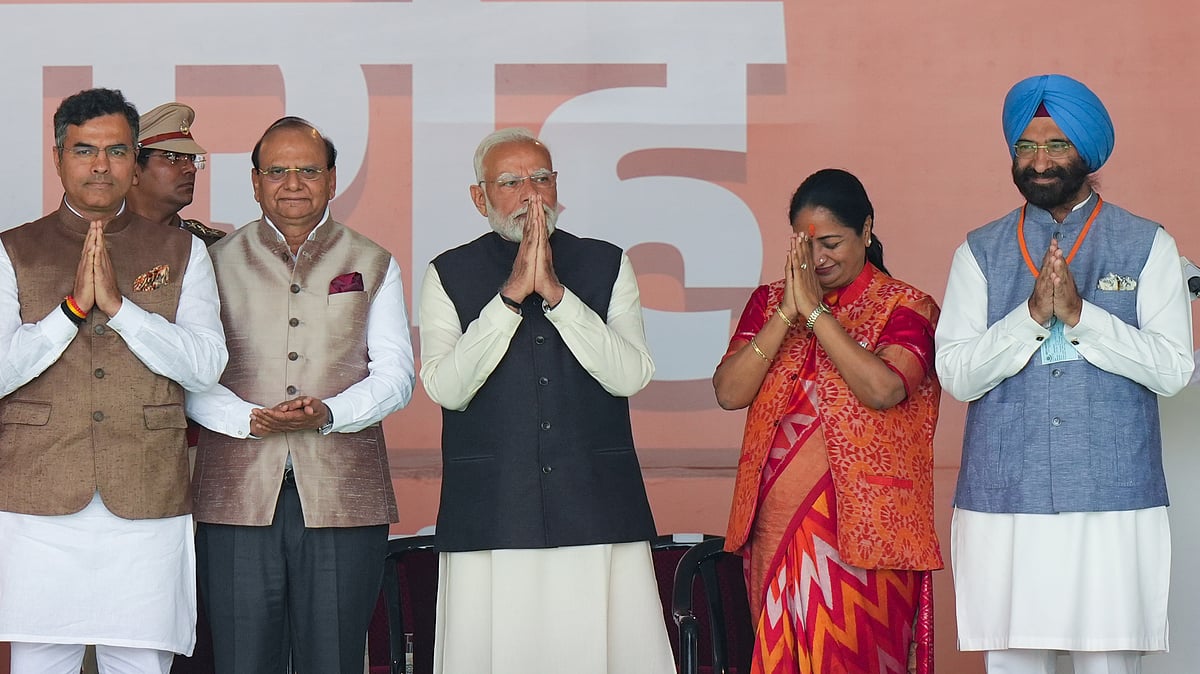Modi’s Pick Is Delhi CM
It took the Bharatiya Janata Party (BJP) 11 days to pick Delhi’s new chief minister, but the final choice bore the unmistakable stamp of Prime Minister Narendra Modi. Few had expected Rekha Gupta to lead the government.

PM Modi with Delhi CM Rekha Gupta, L-G VK Saxena and ministers Parvesh Verma and Manjinder Singh Sirsa | PTI
It took the Bharatiya Janata Party (BJP) 11 days to pick Delhi’s new chief minister, but the final choice bore the unmistakable stamp of Prime Minister Narendra Modi. Few had expected Rekha Gupta to lead the government. While she had once headed the Delhi University Students’ Union, like the late Arun Jaitley before her, and served as Mayor, her biggest disadvantage was her lack of legislative experience. A first-term MLA with no prior exposure to the Assembly, she was certainly not the most obvious choice. Yet, in the Modi era, chief ministers are chosen by one man alone. She may not have been the frontrunner, but Modi clearly saw qualities in her that outweighed her inexperience. The BJP had no dearth of contenders — Parvesh Verma, the giant killer who defeated Arvind Kejriwal; former Leader of Opposition Vijender Gupta, who kept the party afloat in the party’s darkest days; and Kapil Mishra, the ex-Kejriwal loyalist-turned-BJP rabble-rouser. Each had a claim, yet none made the cut. Modi, it appears, preferred a non-controversial figure, who could keep the Delhi BJP’s factions united.
In the recent elections, more women voted for the Aam Aadmi Party (AAP) than the BJP, a trend the party must reverse if it hopes to consolidate power. With no woman chief minister in any BJP-ruled state, Delhi provided the perfect opportunity to change that. Had Atishi Singh been replaced by a man, the message to both party cadres and the electorate might have been counterproductive. Moreover, Atishi, despite AAP’s drubbing, had secured a comfortable victory, proving her political resilience. Rekha Gupta now has the weight of fulfilling the BJP’s campaign promises, many of which were designed to woo women voters. The party vowed to continue the AAP-initiated free bus rides for women, provide women a monthly allowance of Rs 2,500 and Rs 25,000 to pregnant women, and increase pensions for senior citizens. But grand pledges often collide with fiscal reality. Sooner rather than later, Gupta will discover that Delhi’s finances may not be able to sustain such largesse.
Modi himself had promised that women would start receiving the allowance from February 8, a testament to his confidence in winning the election. Now, with Rekha Gupta in the hot seat, there will be no room for excuses. Unlike Kejriwal, who was perennially at odds with Lieutenant Governor V.K. Saxena, Gupta enjoys a rare advantage: a “double-engine” government where the LG, the CM, and the Union Home Ministry are aligned. The bureaucratic roadblocks that hamstrung Kejriwal will not be an issue. With power comes responsibility. Rekha Gupta’s success or failure will not just shape Delhi’s future but also signal how well Modi’s centralised leadership model works in a city that once embraced AAP’s brand of politics. The excuses have run out; it’s time for results.
RECENT STORIES
-
-
-
-
-